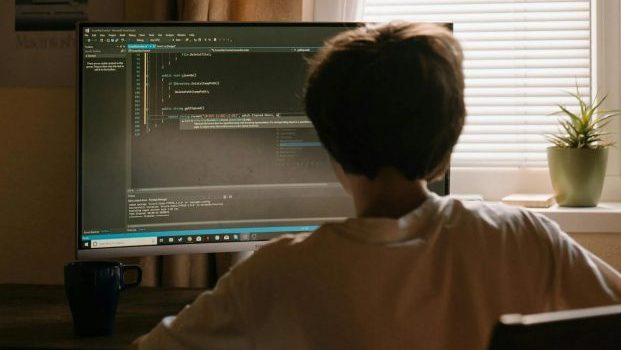Adolescence is just another example of art acting as a conversation piece. The recent series has inspired much conversation after it has highlighted how harmful online misogynistic and ‘incel culture’ content can influence young boys. Netflix’s announcement that the series will be available to screen freely in UK schools shows the cultural importance that has now been placed on Adolescence’s messaging.
Afterall, it was Prime Minister Sir Keir Starmer who called for Netflix to make such a move. But can four hours of television tackle something as enormous as online misogyny and incel culture? Or does it just scratch the surface? And are we now in a ‘govern by TV’ show doom-loop?
Adolescence, if you haven’t seen it, is about a 13-year-old boy, Jamie (played by Owen Cooper), who’s arrested for the murder of a female classmate. As the series unfolds, we start to learn about Jamie’s dark motives, and we’re shown how horrific the consequences of online toxic masculinity and misogyny can be.
The series also demonstrates how Jamie’s parents (Stephen Graham and Christine Tremarco) deal with their son’s horrendous crime. It explores their second-hand guilt for Jamie’s actions, and their confusion surrounding his motivations.
The series is important. It is a direct response to the rise of hateful ‘red pill commentary’ amongst teenagers. It’s the canary in the coal mine of this huge societal challenge which is staring us right in the face. What Adolescence does well is raise questions, and integral ones, at an important time. But what it doesn’t do is answer them – and, in all fairness, I don’t think it was ever meant to.
However, the politicisation of Adolescence as the answer could be problematic. Politician’s overeager responses to the Netflix drama risks an epidemic of condescending conversations between adults and children if adults don’t grasp the nuance of the problem itself first.
Critically, the series shows how young boys in general find it incredibly hard to talk about social media and incel culture, whilst also illustrating adults’ ignorance of those very problems in the first place. This is exemplified when the confused Ashley Walters’ DI Bascombe and his son (played by Amari Bacchus) have an awkward conversation about this mysterious online content at school in episode 2.
However, the exchange demonstrates not the naivety of teenagers to the challenges Adolescence presents, but the naivety of adults. This one scene highlights the need for politicians, teachers, and parents to truly get to grips with this issue before presenting solutions. Anything other than this will result in similar ill-informed conversations happening nationwide.
Furthermore, the laziness in which Andrew Tate’s name is briefly mentioned in episode two feels slightly forced. It’s an obvious signpost to older viewers of the crux of the show – like they were worried all the ‘red pill chat’ would go over people’s heads.
This is not to mean that young people don’t need education on the issue – they really do. However, will positive change be enacted by simply showing the Netflix show in classrooms without any other guidance accompanying it?
Unless teachers, parents, and all adults generally can comfortably and confidently engage with these issues in a non-condescending way, then there’s no hope anything will ever be solved. Showing kids films or shows in class doesn’t always lead to great results – look at Mr. Malik in episode 2 of the show.
At the heart of Adolescence, though, is one thing: a girl who’s been murdered because of the internet – this should, importantly, not be forgotten. Jamie’s crimes, however, demonstrate the worst-case scenario of misogynistic online radicalisation. This is because not every teenager will be a Jamie. Some may just feel confused and isolated – scared of social media and its effects. These children deserve more than Sir Keir and Netflix’s ‘govern and educate by TV’ strategy.
In future, the government should be more proactive in investigating the underlying causes behind the issues Adolescence presents. It’s short sighted to believe that a TV series is going to fix all online misogyny. It’s also patronising to young boys to group them all together as potential Jamie’s – they’re not. Education on this issue needs to be done with subtlety and nuance. What the writers of Adolescence have given society is a prompt. Sometimes that’s all that’s needed. Although the current reaction to the series is both encouraging and potentially problematic, no one can argue that it hasn’t started conversations. And without conversations, great societal challenges can never be solved. The hope is that Adolescence kickstarts the fight-back against online misogyny and incel culture and isn’t just treated as the cure itself.


